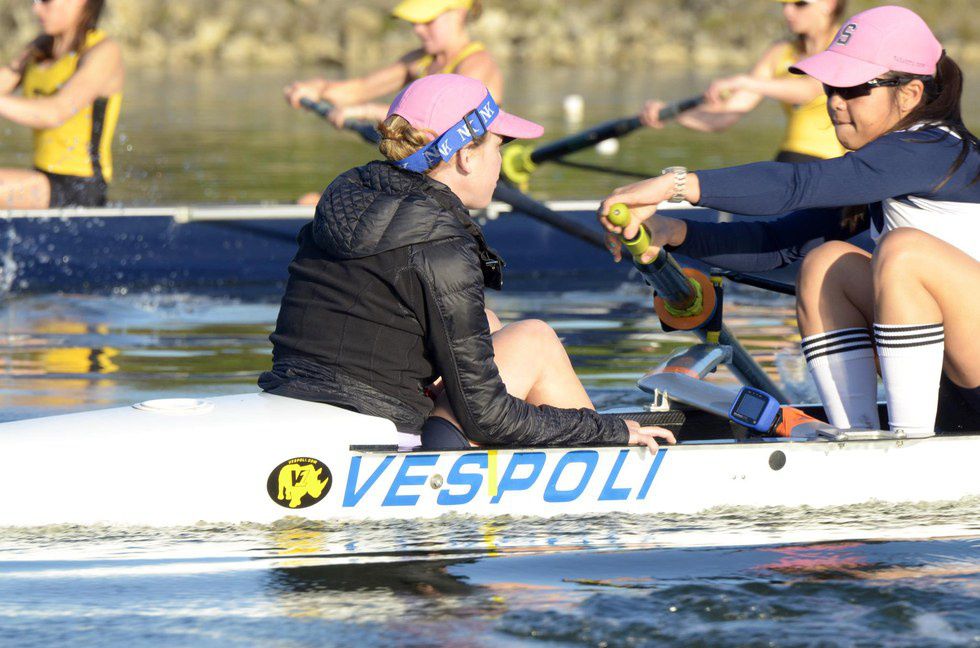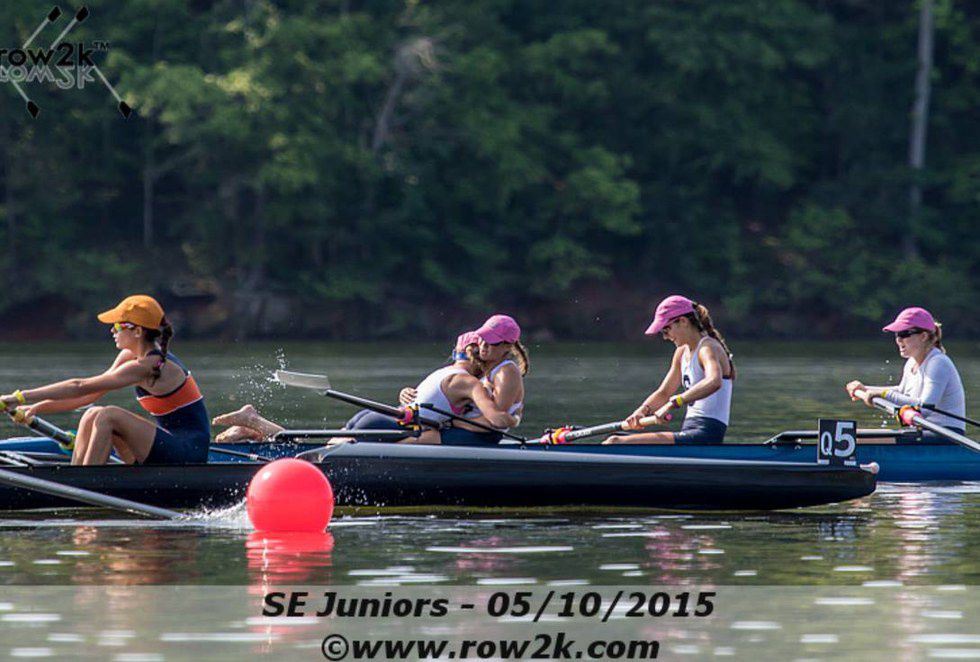I have been a coxswain since I was 12. Over the past six years, whenever I introduce myself as a coxswain, I either get some sort of puzzled stare or a look of distaste. The general public assumes that what I do is beat some sort of drum and shout the work "stroke" over and over again, for the entirety of our three-hour long practice. Essentially, something like this...
No. Just no. First of all, I don't have a drum of any sort. I have never met a coxswain who has ever used a drum. This is what an actual coxswain looks like...
The girl in the black jacket is me. As you can see, there is no drum to be found. As a coxswain, I am the only person in the boat facing forward. That's the main reason why a coxswain is so important. The rowers are facing backwards. Since, they can't see, I call the shots. I tell them when to go faster, slower, harder, or lighter. I also motivate them -- a task that can be extremely difficult since rowers are notoriously fickle people. I correct their technique when their doing something wrong (and, since rowing is never perfect, they are always doing something wrong). If you want to listen to what a great coxswain sounds like, here is a recording of Mary Whipple (Olympic Women's Coxswain):
I could go on and on for days about what a coxswain is and does. It is an extremely complicated job that requires a lot of mental focus and the ability to work hard with little to no recognition (rowers, on top of being fickle, are often unappreciative). I am essentially the boat mom. I take care of my rowers on an emotional and psychological level. I want them to be happy, healthy, and successful. They rarely thank me, and I don't expect them to, because I love what I do and wouldn't trade it for anything else in the world.





















